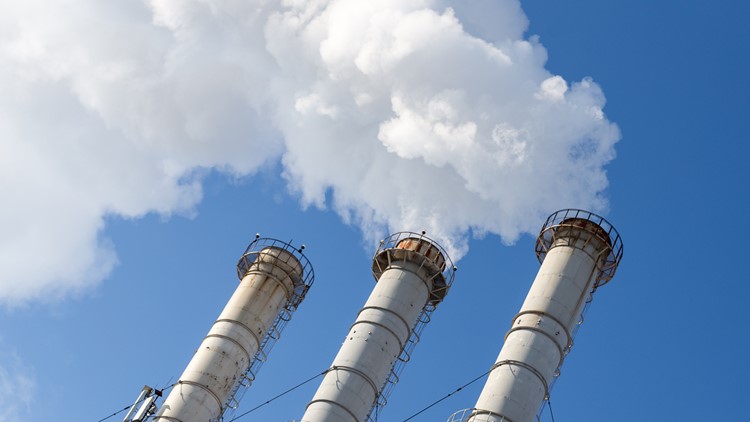COLORADO, USA — If you thought air pollution was affecting your health, now you could become more aggressive because of it.
This is according to a new study conducted by researchers at Colorado State University (CSU) during an eight-year period where their results indicated strong links between exposure to air pollution and aggressive behavior.
This is in forms of aggravated assaults and other violent crimes across the continental United States, according to the study.
Data from daily Federal Bureau of Investigation (FBI) crime statistics and an eight-year detailed map of daily U.S. air pollution helped researchers determine the final results.
Researchers cross-analyzed daily criminal activity, county-level pollution from 2006 to 2013 collected by the U.S. Environmental Protection Agency, and wildfire smoke plume daily data provided by the National Oceanic and Atmospheric Administration's (NOAA) Hazard Mapping System.
Air pollution scientists normally measure rates of pollution through concentrations of ozone and “PM2.5,” or breathable particulate matter that has been documented with ties to health effects, the study said.
The study also found exposure to PM2.5 is associated with a 1.4% increase in violent crimes categorized as assaults.
“We’re talking about crimes that might not even be physical – you can assault someone verbally,” co-author and economist Jude Bayham said. “The story is, when you’re exposed to more pollution, you become marginally more aggressive, so those altercations – some things that may not have escalated – do escalate.”
The study indicated results only showed the strong correlative relationship between such crimes and levels of air pollution and made no claims on the physiological, mechanistic relationship between pollution exposure.
Lead author Jesse Burkhardt mentioned how he wanted to study whether breathing smoke could enact behavioral change when he met co-author and atmospheric scientist Jeff Pierce.
“Several years ago, Fort Collins experienced a fairly severe wildfire season,” Burkhardt said. “The smoke was so bad that after a few days, I started to get frustrated, and I wondered if frustration and aggression would show up in aggregate crime data.”
Pierce said the pollution-concentration product he developed with his colleagues, which identifies detailed concentrations of total particulate matter and the fraction from smoke, would help in Burkhardt's study.
“The results are fascinating, and also scary,” Pierce said. “When you have more air pollution, this specific type of crime, domestic violent crime, in particular, increases quite significantly.”
Following the study, Burkhardt began working with a large online chess platform to find if increased pollution exposure is linked with worse chess performance.
SUGGESTED VIDEOS | Local stories from 9NEWS



